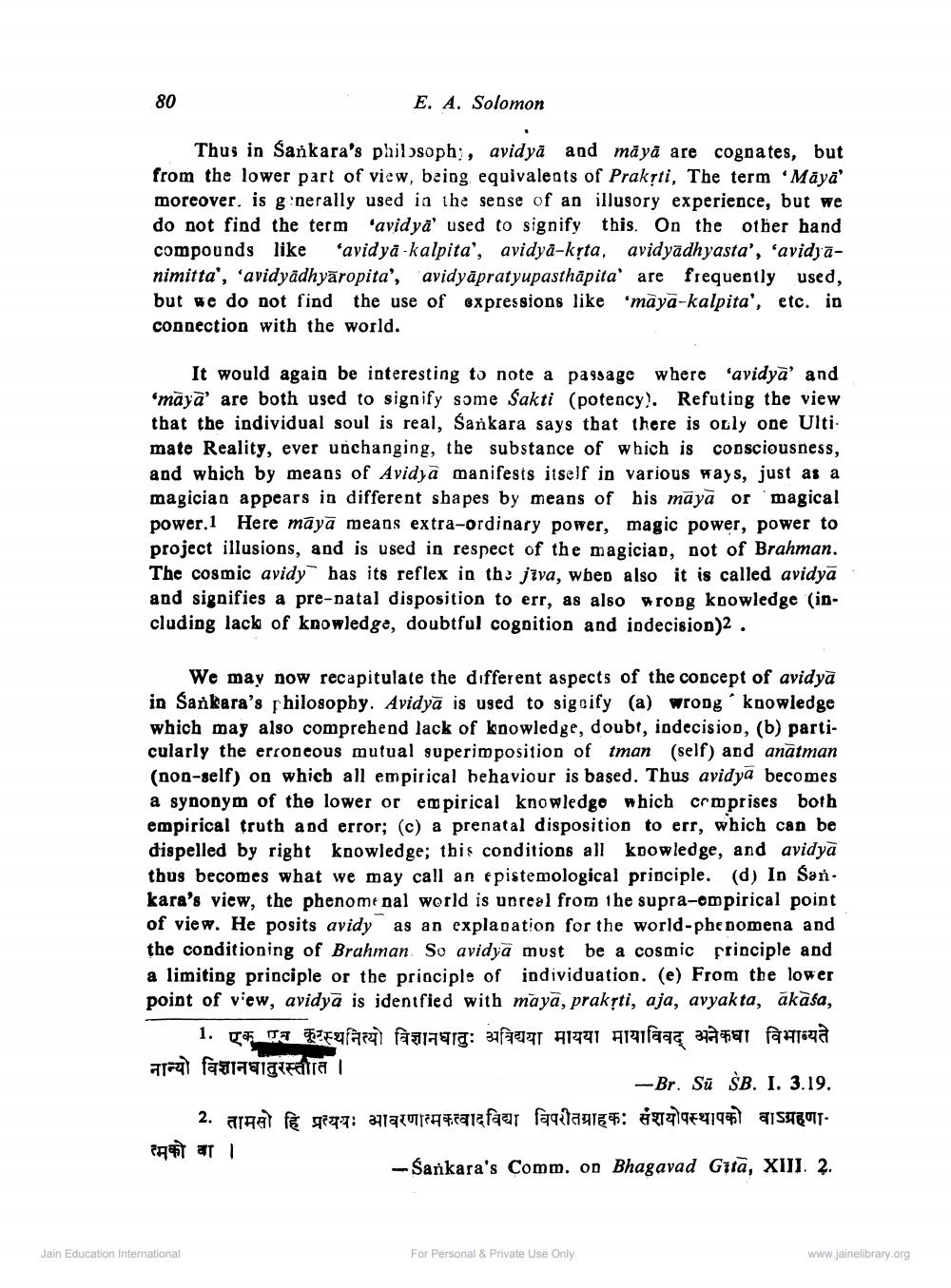________________
80
E. A. Solomon
Thus in Sankara's philosophy, avidyā and maya are cognates, but from the lower part of view, being equivalents of Praksti, The term 'Māyā moreover, is gènerally used in the sense of an illusory experience, but we do not find the term "avid ya' used to signify this. On the other hand compounds like "avidya-kalpita', avidya-kyta, avidyadhyasta', 'avidyānimitta', 'avidyadhyāropita', avidyāpratyupasthāpita' are frequently used, but we do not find the use of expressions like 'māyā-kalpita', etc. in connection with the world.
It would again be interesting to note a passage where 'avidyā' and 'mayà' are both used to signify some sakti (potency). Refuting the view that the individual soul is real, Sankara says that there is only one Ulti. mate Reality, ever unchanging, the substance of which is consciousness, and which by means of Avidyā manifests itself in various ways, just as a magician appears in different shapes by means of his māyā or 'magical power.1 Here māyā means extra-ordinary power, magic power, power to project illusions, and is used in respect of the magician, not of Brahman. The cosmic avidy has its reflex in th: jīva, wbed also it is called avidyā and signifies a pre-natal disposition to err, as also wrong knowledge (including lack of knowledge, doubtful cognition and indecision)2.
We may now recapitulate the different aspects of the concept of avidyā in Sankara's shilosopby. Avidyā is used to sigoify (a) wrong knowledge which may also comprehend lack of knowledge, doubt, indecision, (b) particularly the erroneous mutual superimposition of tman (self) and anatman (non-self) on which all empirical hehaviour is based. Thus avidya becomes a synonym of the lower or empirical knowledge which crmprises both empirical truth and error; (c) a prenatal disposition to err, which can be dispelled by right knowledge; this conditions all knowledge, and avidya thus becomes what we may call an epistemological principle. (d) In San. kara's view, the phenomenal world is unreal from the supra-empirical point of view. He posits avidy as an explanation for the world-phenomena and the conditioning of Brahman So avidyā must be a cosmic principle and a limiting principle or the principle of individuation. (e) From the lower point of view, avidyā is identfied with mayā, praksti, aja, avyakta, ākāśa,
1. एक पत्र कूटस्थनित्यो विज्ञानधातुः अविद्यया मायया मायाविवद् अनेकधा विभाब्यते नान्यो विज्ञानधातुरस्तीति ।
-Br. Sū SB. I. 3.19. 2. तामसो हि प्रत्ययः आवरणात्मकत्वादविद्या विपरीतग्राहक: संशयोपस्थापको वाऽग्रहणा. A at
-Sankara's Comm. on Bhagavad Gitā, XII. 2.
Jain Education International
For Personal & Private Use Only
www.jainelibrary.org




